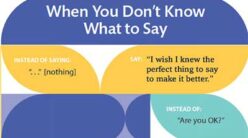ure, right now you may be busy with the holiday whirlwind, but New Year’s Day is right around the corner—and with it, New Year’s resolutions. The start of a new year is the perfect (and popular) time to set fitness and health goals—whether that’s eating better, exercising more often, or losing those extra pounds.
But if you go into the new year with high hopes and no plan, you may end up like the majority of resolution makers: giving up by February. There’s no better time than right now—the end of the year—to identify the roadblocks that have kept you from achieving your health goals in the past. Once you recognize what has held you back, you’ll be able to figure out a way around them. Only by doing so can you stay the course when both minor and major crises threaten your progress.
The Three Major Roadblocks
to Better Health
Before you think ahead to New Year’s resolutions, think back over the past year. Which of these three kinds of roadblocks did you experience?
Physical Roadblocks
You’ve been putting in long hours at work, and you’re exhausted. You’re sore from yesterday’s workout. You feel like you’re catching a cold. All good reasons for skipping your regular workout, right?
Wrong. While these may be some popular excuses for missing a workout, that doesn’t mean they hold water, says certified personal trainer and strength and conditioning specialist Brad Schoenfeld, author of Strong and Sculpted. Admit it—the real reason may be that you just don’t want to exercise, and you’re looking for a good excuse.
“Laziness is at the top of the list of excuses,” he says. “With training, there is discomfort involved, and there is the human drive to seek pleasure and avoid pain. No matter how fun the activity, fitness is on the pain side of the equation.”
To overcome your natural tendency to avoid pain—say, if you’re too tired to exercise—remind yourself why getting and staying fit is important to you. Is it because you want to lose weight, or have more energy to spend time with your children or grandchildren? Write your personal motivators down, and review the list when you need a motivation boost.
“‘I’m tired’ is an excuse,” says Schoenfeld. “Everyone is going to have days when they’re more tired than others, but you have to really look at what you want to get from fitness.”
While you may feel more tired immediately after a workout, as you become fitter, you’re less likely to feel fatigued during the day. “Over time, developing your muscles and developing your cardiovascular system will make you less tired,” says Schoenfeld. “Look toward the long term—this will prevent the short-term aspects of being tired in the future.”
The excuse that you’re sore from your last exercise session doesn’t hold up either. Being sore from a workout is actually a good reason to get back into the gym. Research shows that light exercise after high-force eccentric exercise, such as weight lifting, results in improved recovery of muscle function and, in fact, can improve muscle soreness. A lower-intensity workout, such as walking or swimming at an easy pace, can help increase circulation and aid in recovery.
And what about that other common excuse of minor illnesses, such as a cough or stuffy nose? Don’t let them deter your workouts, either. Instead of ditching exercise completely, try exercising at a lower intensity. Make sure to drink plenty of fluids and listen to your body—if you really don’t feel up to exercising, take the day off. And if you have a fever, sideline your workout for a day or so.
Emotional Roadblocks
If a minor setback derails your program, does it take you a week or more to get back on track? This kind of all-or-nothing thinking is common. You figure if you can’t get in your usual workout, it’s not worth it, so you end up frustrated and then have to start from scratch. Be easier on yourself, and you’re more likely to stick with your program.
Even if you can only exercise once a week, use it as a starting point, says Schoenfeld. “That will facilitate you getting back into exercise much quicker. If you just do nothing, you’ll be basically starting from ground zero. Doing something is always better than nothing.”
Unrealistic expectations are another common emotional roadblock. If you’re 5’2″ with a muscular build, no amount of exercise will give you the body of a tall supermodel. You can, however, get stronger and leaner. The key is to be realistic about what you can achieve.
Another common emotional roadblock? Stress. If you’re under a lot of pressure, use that as one more reason that you should exercise, not skip it. Along with prayer, exercise is one of the most effective tools you have for coping with stress. Studies show that it helps reduce anxiety and alleviate depression.
A workout also helps you cope with stress because it distracts your mind from your problems. You can’t focus on your problematic coworker when your mind is engaged in doing squats or intervals—you’re too caught up in what you’re doing. In addition, research proves that you’ll feel better after your workout. Not only will it lift your mood, you’ll also have the satisfaction of knowing that you did something good for your body.
Lifestyle Roadblocks
The biggest excuse for not exercising? You know it already: not enough time. But it takes less time to get fit than you may think.
“Number one, it does not require a lot of time to work out,” says Schoenfeld. “You only need thirty to forty minutes to do a terrific weight workout.”
If time is your biggest roadblock, sit down with your calendar. What’s the most convenient time for you to exercise? Is it first thing in the morning, or during your lunch break? Or is after work the best time for you? Schedule “appointment” times for exercise the same way you would any other responsibility, and you’ll be more likely to stick to your plan.
If time is short, consider combining activities. Instead of going to lunch with your best friend, go for a walk together instead. Download an uplifting podcast to listen to during a cardio workout, or use your early-morning walk as an opportunity to pray as well. When you’re juggling family and work responsibilities, you have to be flexible. That may mean doing short, intense weight workouts during the week and then doing a longer routine on the weekends, when you have more time.
When it comes to exercise excuses, maybe it’s not time but boredom that has you sidelined. The cure for that is to add something new every time you work out.
“Variety is the spice of training,” says Schoenfeld. “A workout should never be boring, and the main reason it is boring is people get set in the same routine and do the same thing over and over.”
Try swimming, a new exercise class, or hiking trails you’ve never explored. If you go to the gym, mix up your weights with variations of different movements, and use interval training to keep your cardio sessions fresh and challenging. Even doing your usual routine in a different order will challenge your muscles differently and force you to think about what you’re doing, alleviating boredom.
Remember, everyone, no matter how dedicated, encounters a few roadblocks on their journey toward fitness. By identifying your obstacles and how you can overcome them, you’ll ensure that you won’t deter your progress on the way to achieving your health goals this year.
Kelly K. James is a certified personal trainer and a health and wellness writer based in Illinois.






